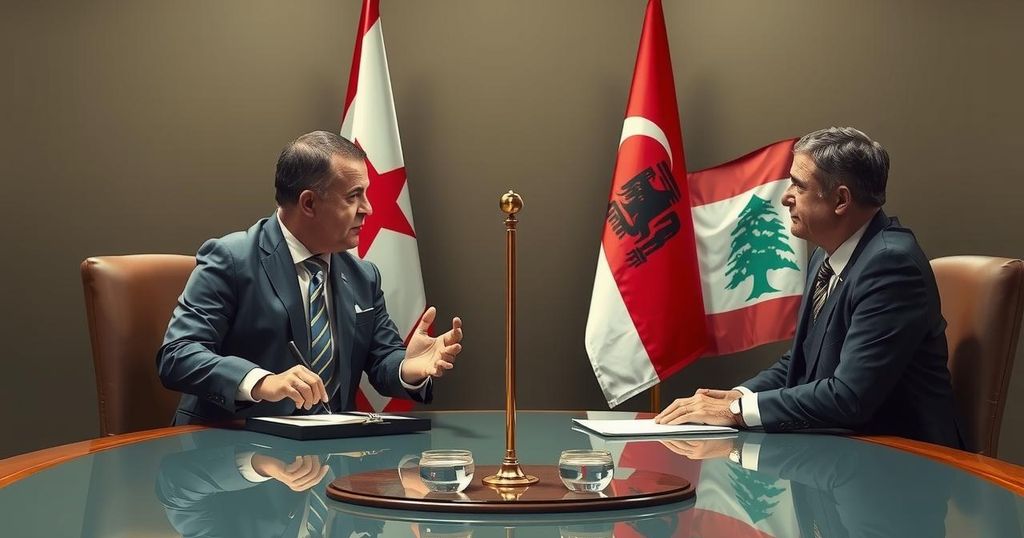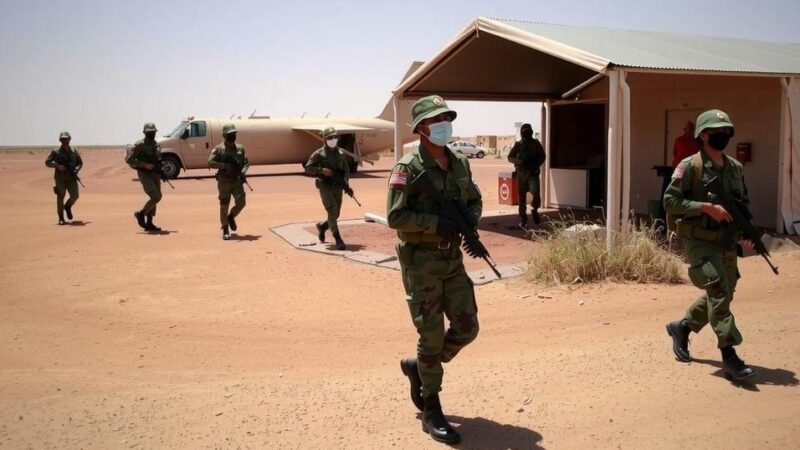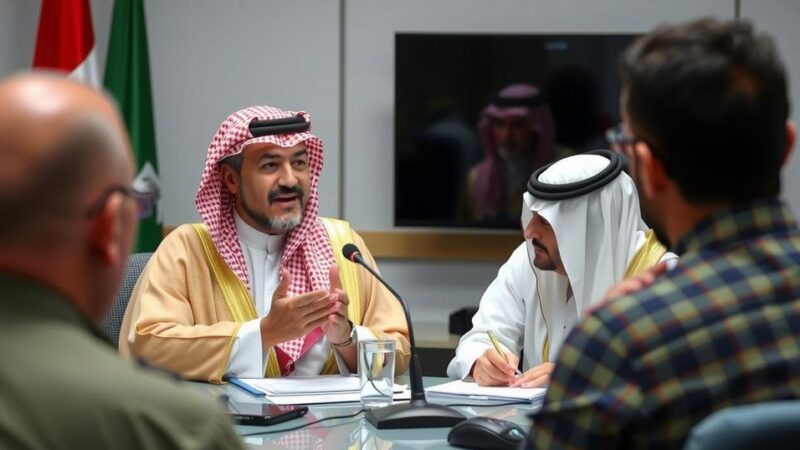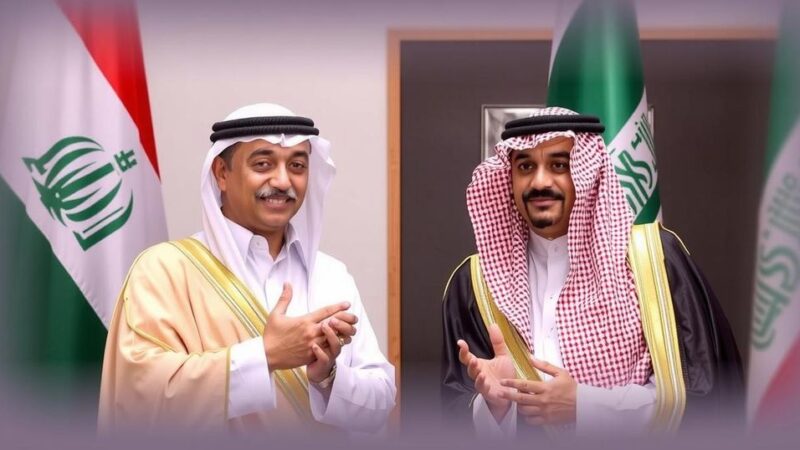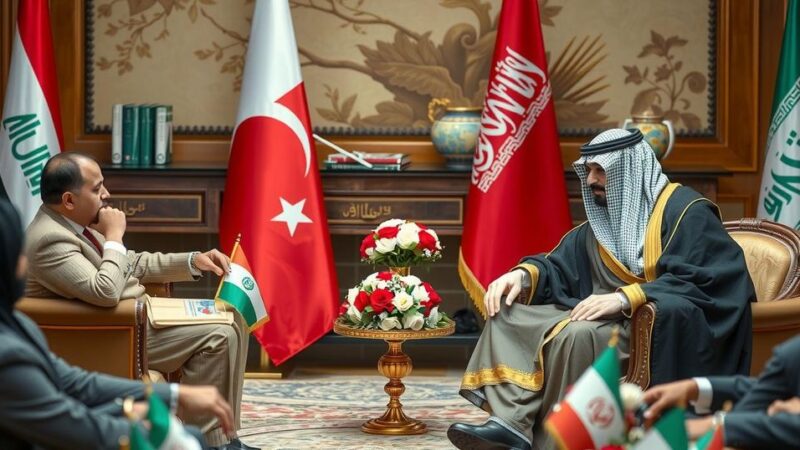Hay’at Tahrir al-Sham (HTS) leader Ahmed al-Sharaa stated that Syria will not negatively interfere in Lebanon’s affairs, promising to respect Lebanon’s sovereignty and stability. This declaration was made to Lebanese Druze leaders, marking an effort to normalize relations following years of conflict. Sharaa emphasized Syria’s intention to maintain neutrality towards all groups in Lebanon, reflecting an evolving diplomatic approach in the region.
On Sunday, Hay’at Tahrir al-Sham (HTS) reassured a delegation of Lebanese Druze leaders that Syria would not engage in negative interference concerning Lebanon’s affairs. HTS leader Ahmed al-Sharaa, also known as Abu Mohammed al-Jolani, stated that Syria would honor Lebanon’s sovereignty, territorial unity, and decision-making independence while ensuring its security stability. This meeting comes as part of HTS’s broader efforts to mend ties with neighboring nations following over a decade of civil conflict in Syria.
Sharaa emphasized the intent to maintain neutrality towards all groups in Lebanon, remarking that Syria has been perceived as a source of fear and anxiety within the country. The historical entanglement of Syria and Lebanon is significant, particularly given Syria’s military presence in Lebanon from 1976 until 2005. Moreover, the ongoing Syrian civil war has resulted in a substantial influx of Syrian refugees into Lebanon, stressing the relationship between the two nations.
During this important meeting, Druze leader Walid Jumblatt, who led the delegation of MPs and clerics to Damascus, became the first Lebanese leader to engage with Syria’s new governance. In recent years, the Druze community in Syria has faced various threats, including those from Israel and extremist factions. Additionally, HTS, formerly known as Jabhat al-Nusra, has a controversial history with the Druze, particularly marked by the tragic events in Qalb Loze in 2015, which have since influenced perceptions of the group.
Such diplomatic engagements indicate a shift in Syria’s approach to foreign relations post-civil war, aiming for stability in the region and reconciliation with its neighbors.
The relations between Syria and Lebanon have been historically complex, characterized by deep intertwining interests and conflicts. Syria’s military presence in Lebanon from 1976 to 2005 laid the foundation for enduring political and social ties that have often been tumultuous. Since the onset of the Syrian civil war in 2011, Lebanon has been heavily impacted, receiving a vast number of Syrian refugees seeking asylum from the ongoing violence in their homeland. This situation highlights the significance of HTS’s recent statements, given the group’s controversial history and the tensions within the Druze community in both nations. Syria’s current political landscape is undergoing transformation after the ousting of former President Bashar al-Assad, with HTS now seeking to normalise relations with neighboring countries. This move signifies an attempt to establish a new political order and foster stability in the region, particularly as neighboring nations have worries about Syria’s intentions and actions.
In conclusion, HTS’s assertion that Syria will not engage in negative interference in Lebanon marks a critical step toward improving the diplomatic relationship between the two nations. The emphasis on respecting Lebanon’s sovereignty, coupled with HTS’s aim for neutrality, suggests a strategic shift in Syrian policy amidst the complex backdrop of regional tensions. These diplomatic overtures reflect HTS’s desire for reconciliation and stability, an essential aspect in the post-civil war context of Syria and Lebanon.
Original Source: www.middleeasteye.net

